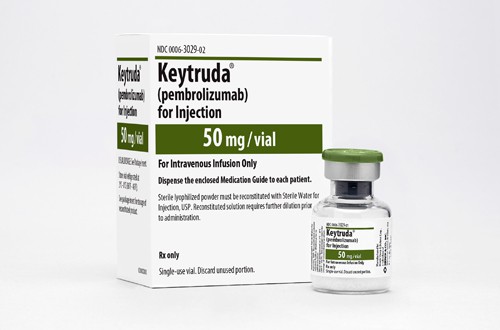
Merck & Co’s new cancer immunotherapy Keytruda (pembrolizumab) could have a first-line licence for melanoma by the end of the year as the FDA speeds up its review of the treatment.
The drug, the world’s first approved PD-1 treatment that teaches the body’s immune system to fight tumours, already has a licence for advanced or unresectable melanoma who are no longer responding to other drugs – ie, as a second-line treatment.
But this review is seeking to set the drug higher up the treatment pathway as a first-line treatment, leading to more use and higher revenue for the firm.
The FDA has granted a ‘Priority Review’ with a PDUFA – or target action date – of December 19, 2015 for its appraisal to be complete. The drug is also under review for the treatment of certain lung cancers.
Dr Roger Perlmutter, president of Merck Research Laboratories, said: “Through our clinical programme for Keytruda we have accumulated substantial data on the role of our anti-PD-1 therapy in advanced melanoma. We look forward to the FDA’s review of each of these applications, and to delivering on our goal of helping patients with advanced melanoma to achieve long-term disease control and survival.”
But it has not all been good news as the US regulator has also extended the action date for a separate new licence for Keytruda in use in patients who cannot use Bristol-Myers Squibb’s older immunotherapy drug Yervoy (ipilimumab), which currently has a first-line licence for the disease. The new action date is now Christmas Eve.
Merck is competing for market share with BMS’ Opdivo (nivolumab), which has US licences for second-line melanoma patients and in advanced squamous non-small cell lung cancer, with progression on or after platinum-based chemotherapy.
Keytruda brought in sales of $83m in the first-quarter – edging out Opdivo’s $40m in sales.
The PD-1 market, which may soon also see treatments from Roche and AstraZeneca, is expected to be worth $25bn by the end of the decade, with Merck’s and BMS’s drugs both expected to be major blockbusters.




